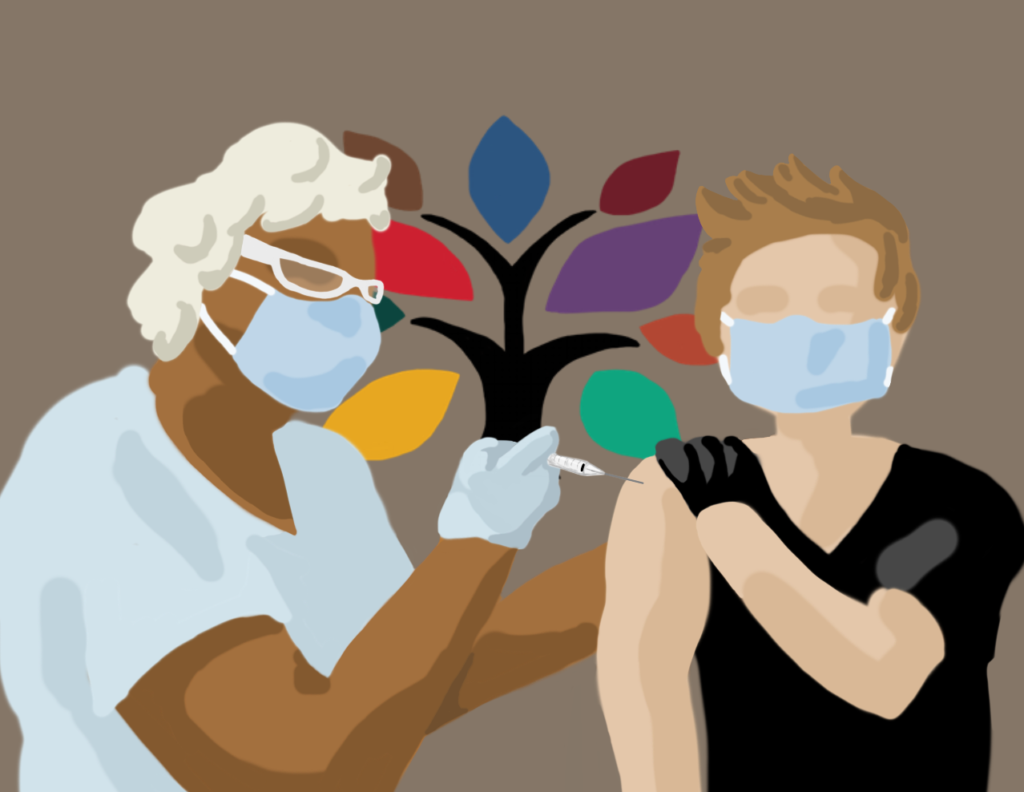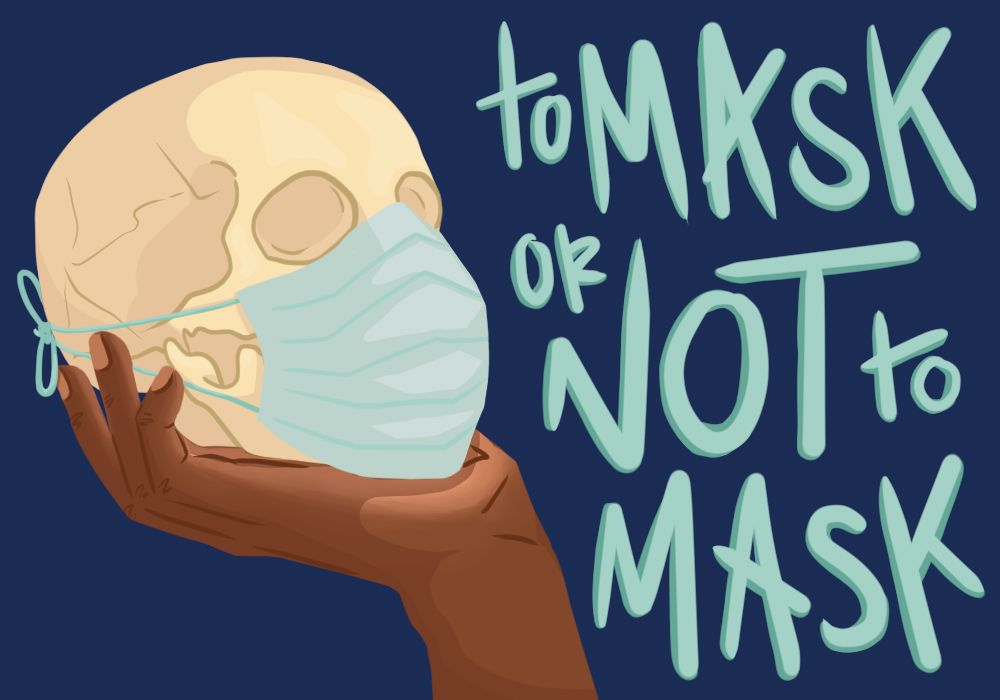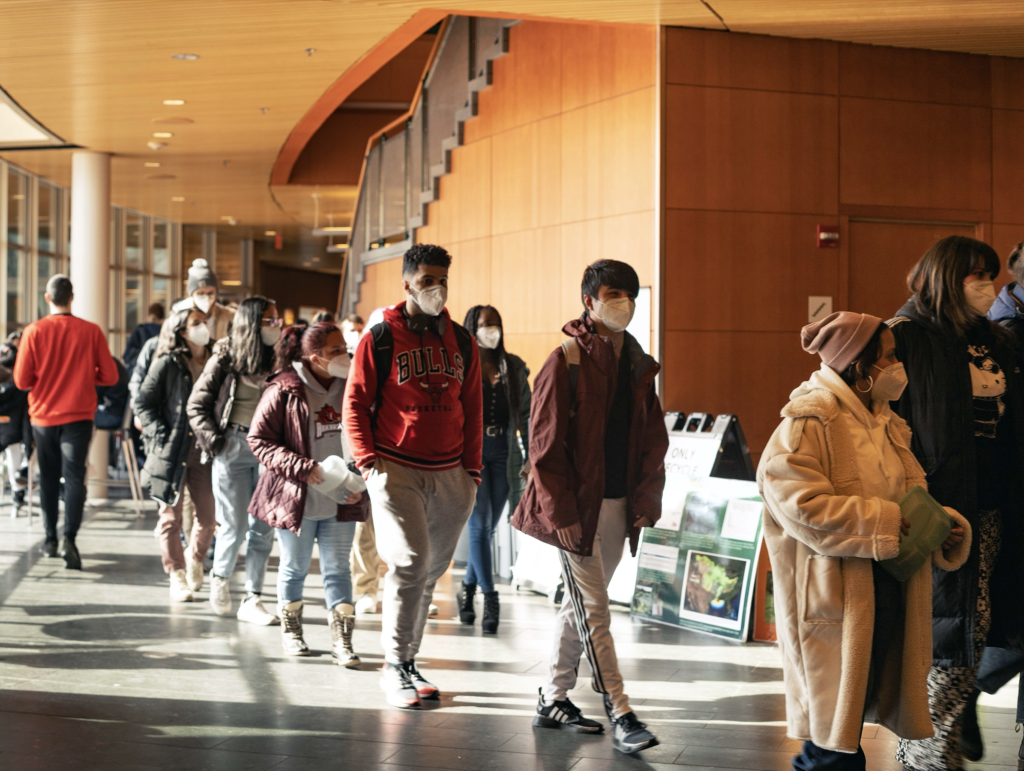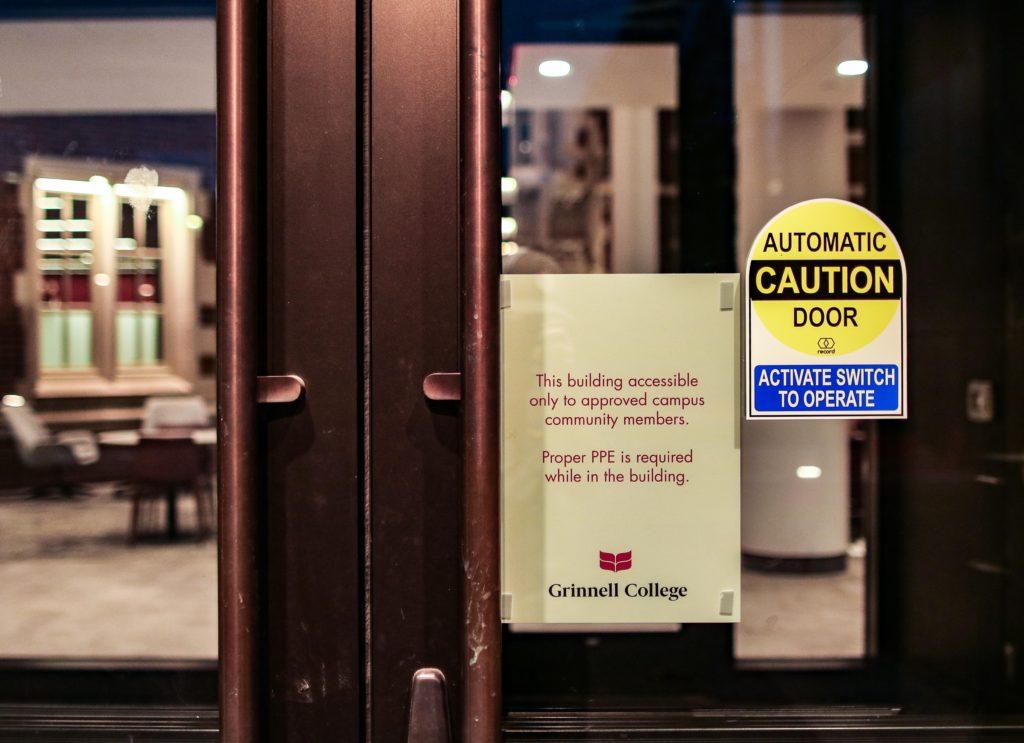By Shabana Gupta and MJ Old
President Anne Harris’ email announcing Grinnell College’s no-loan initiative delivered something that is, in 2020, an even rarer commodity than toilet paper: good news. Starting in fall 2021, the financial aid packages Grinnell offers its students will no longer include loans, meaning that, in theory, students who qualify for need-based aid will be able to graduate debt-free.
To students, the announcement came with little warning.
“I was really astonished that Grinnell would do that, even though it makes total sense,” said Claire Liddle ’23. “I ran downstairs, and I was like, ‘Mom, they cancelled loans!’”
“We’re used to getting bad news; it’s weird to suddenly be like, ‘Oh, by the way, no loans!’ And I’m like, ‘Whoa, that’s the first nice thing you’ve sent me since fucking February!’” said Alanis Gonzales ’22.
(Editor’s note: Alanis Gonzales is a staff writer for The Scarlet & Black).
The change affects over 60 percent of enrolled students. An average member of the class of 2019 graduated Grinnell about $20,000 in debt, which is still significantly less than the national average of about $30,000.
Liddle expects that with her final two years at Grinnell loan-free, she can pay off everything she already owes through work and family support in time to graduate debt-free. “That really does change things, because it’s not like, ‘Okay I have to focus on paying off these loans before I do anything else,’” Liddle said.
Leaving school with debt affects how students plan for the future, whether they’re going to graduate school or entering the workforce and what kinds of careers they pursue. “I plan to go to medical school, and I know that I’ll have to take out an ungodly amount of loans. So, having this no-loan initiative … gives me hope,” Nicole Cabe ’23 said. “I’ll have an easier time paying [undergraduate loans] off before I need to take bigger loans in the future, so I think this initiative allows me to see that future more clearly.”
And the relief of financial stress doesn’t wait for after graduation. “Maybe I can save up and get a car now,” Gonzales said. “Like, that’d be exciting.”
Only a handful of high-tier schools currently offer solely no-loan aid. With the pandemic creating recruiting challenges for colleges everywhere, going no-loan is likely to help Grinnell stand out. “All colleges are having a hard time with recruitment. … No one wants to go to college in the middle of a pandemic,” Gonzales said. “I don’t even want to go to college in the middle of a pandemic. I’m just already here.”
Cabe, Gonzales and Liddle all said that Grinnell offered the best financial aid package out of all the colleges to which they were admitted. “Back in high school, I was going through the college application process; I was like, for sure I’m going to have loans, it’s just a matter of minimizing the amount I’m going to take,” Cabe said.
But students’ enthusiasm about the no-loan initiative is still tinged with hesitance. “Yes, there’s no loans, but they say in the email there’s still going to be loans available, which begs the question: does that mean the scholarship they’re replacing with won’t be enough to cover the cost of attendance at Grinnell?” Cabe said.
I’ll have an easier time paying [undergraduate loans] off before I need to take bigger loans in the future, so I think this initiative allows me to see that future more clearly. – Nicole Cabe ’23
The College determines what a student’s financial need is based on the Free Application for Federal Student Aid (FAFSA) forms, but that doesn’t mean that the forms always accurately describe what a student’s real need is.
Some students already borrow outside the amount their financial aid package expects them to. “Even though I do get a lot of financial assistance from Grinnell, I did have to take out loans, not necessarily to pay for my tuition or my room and board,” Gonzales said.
Instead, she took out loans so she could have health insurance and to cover a portion of work-study when she was unable to work as many hours as Grinnell expected her to. “I can’t work as much as I need to work and also pass my classes and also, like, sleep.”
“While I’m personally very hopeful about this and I’m excited to not have to borrow anything, I am fearful at the same time that I’ll still have to borrow,” said Cabe.
Recent graduates and fourth-years, who will not be affected by the policy, have some mixed feelings about the way the decision was made.
Errol Blackstone ’20 is happy for the students that will be part of the initiative, but he takes issue with the change being a reaction specific to the pandemic, as the College has said it is.
“There were low income students before the pandemic happened, and there were issues with loans before the pandemic,” Blackstone said, noting that marginalized students have always struggled with student loans.
Similarly, Paige Oamek ’20 says she’s excited for all of the younger and incoming students who will be part of the initiative and have fewer loans when leaving college. At the same time, she is skeptical of the College’s apparently sudden interest in going loan-free.
“What’s important to keep in mind is that they could have always done this, and people have been asking for years,” she said.
There were low income students before the pandemic happened, and there were issues with loans before the pandemic. – Errol Blackstone ’20
Connor Stanfield ’21 said, “It’s frustrating to feel like the College cares more about potential students than current students.” He said that many students have been graduating into an unstable job market, and that their loans are only going to get more expensive.
Some students even have financial anxiety on behalf of the College. The plan is expected to cost $5 million per year, an expense which Harris has said is supported by the current positive projections on the school endowment.
“I do wonder about like their financial security, because I know Grinnell has a lot of money – we all know that it has a lot of money – but I’m curious; I worry that they’re spending too much money,” Gonzales said. “It’s a really drastic measure, and to me that always speaks to something else that’s going on with administration.”





























































Former S&Ber • Dec 17, 2020 at 11:02 am
What if, and this is crazy, they lowered tuition and committed to not raising it?